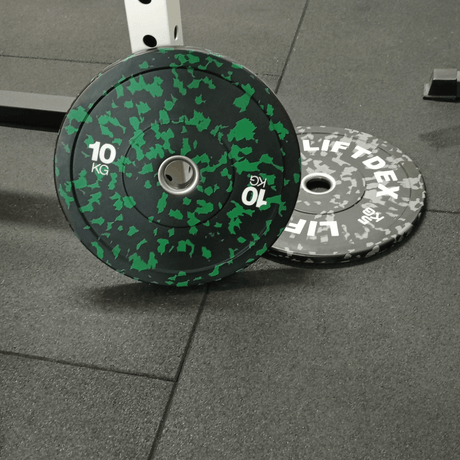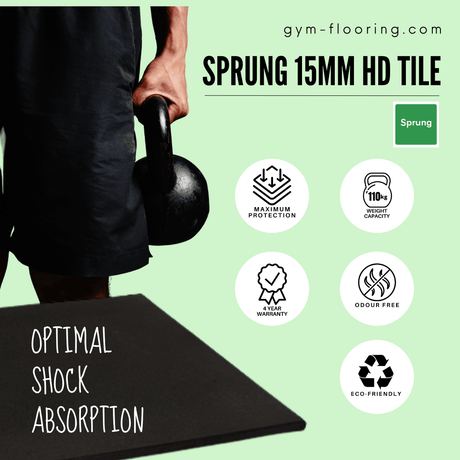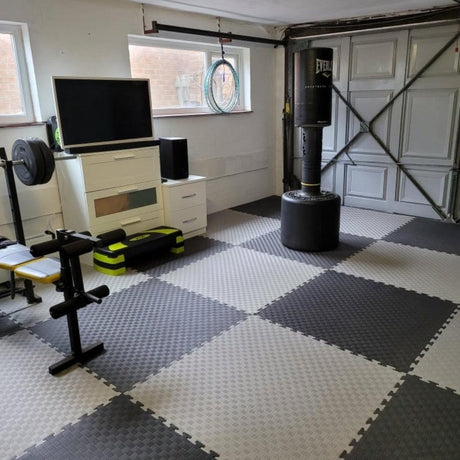The fitness landscape is continuously evolving, with fitness trends in 2025 highlighting the power of technology, specialised programming, and a balanced, holistic approach to physical and mental health.
Here’s a closer look at the top fitness trends shaping how we’ll work out, recover, and maintain well-being in the coming year.
Technology Integration: Leading the Way in Health and Fitness Trends
As technology advances, so does its impact on fitness. In 2025, tech-driven fitness trends are at the forefront, reshaping how people train and track their health.

Fitness Trackers and Wearable Technology
Fitness wearables, from fitness trackers to smartwatches, remains one of the biggest fitness trends. These devices and fitness app options provide real-time health data, encouraging users to make healthier choices in everyday life. However, fitness professionals are emphasising the need for awareness around data privacy, reliability, and the limitations of wearable tech.
Mobile Exercise Apps
Exercise apps have surged in popularity, now ranking as the second most popular trend. These apps offer flexible, customised workout plans and exercise routines that pair seamlessly with wearable devices. As the selection of apps grows, it’s essential for users to choose those that are evidence-based and rooted in best practices. These fitness app options also blend well with home fitness routines and the upsurge of home gyms as well as integrated software within the fitness industry as a whole (example abc fitness solutions).
Data-Driven Training Technology
Data-driven tech goes beyond basic tracking. By using real-time biofeedback (like heart rate variability), it dynamically adjusts workouts for safety and effectiveness. This trend is especially popular with personal trainers, strength coaches and athletic trainers, allowing for individualised support in group classes and training environments.
Specialised Programming: Health and Fitness That Fits Every Need
People are seeking health and fitness programs tailored to their unique needs, whether it’s for health management, physical limitations, or personal goals.

Fitness Programs & Low Impact Workouts for Older Adults
With an aging population, fitness programs for older adults continue to be crucial. These programs focus on strength, balance, and functionality, which helps counteract age-related muscle loss (sarcopenia), cardiovascular health and overall quality of life.
Exercise for Weight Loss
As global obesity rates rise and a sedentary lifestyle is common, losing weight remains a priority. Fitness industry trends are focusing on sustainable, long-term methods like strength training, which helps preserve muscle mass and heart health during weight loss efforts.
Exercise for Mental Health
Fitness for mental health and well-being is increasingly prioritised. Exercise is proven to reduce anxiety, stress, and depression, and as the connection between mental health and physical health is recognized, more personal trainers are pursuing certifications in mental health training to better support their clients’ holistic well-being.
Home Gyms and Workouts
The rise of home fitness and personal home gyms, a trend sparked during the pandemic years, remains a dominant force in 2025. With its seamless blend of convenience, customisation, and accessibility, the home fitness revolution shows no signs of waning.
Fuelled by advancements in technology, a growing desire for personalised wellness experiences and the rising costs of gym memberships, more people than ever are carving out dedicated spaces in their homes for exercising regularly. From minimalist setups with yoga mats and dumbbells to fully equipped studios for lifting weights and strength training, the concept of working out at home has become a mainstay in modern life.
Holistic Fitness: A Balanced Approach to Physical Wellbeing and Mental Wellness
Holistic fitness is about more than just physical strength—it’s about well-being in all areas of life. In 2025, more people are recognizing the importance of a balanced approach, where physical fitness and mental health benefits are equally important. From health clubs, fitness facilties and fitness brands, the fitness industry are embracing this hybrid approach.

Popular Holistic Fitness Trends
Functional Fitness
Functional fitness training focuses on exercise routines that improve daily movement, reducing the risk of injury and enhancing physical capability. Consistently popular, functional fitness has ranked among the top 10 fitness trends for nearly two decades.
Health and Wellness Coaching
Health coaching has gained traction, with wellness coaches helping clients build sustainable lifestyle habits through behavioral science. This approach combines physical activity with emotional well-being, giving individuals the tools they need for long-term success in their fitness journey.
Benefits of Holistic Fitness Trends
With this surge in holistic fitness trends that promise to revolutionise how we approach health and fitness, practices like functional fitness and health and wellness coaching are not just about looking good but about feeling good, moving better, and achieving sustainable well-being.
Fitness Trends become Real Life
Functional fitness has taken centre stage, focusing on movements and physical activity that mimic real-life activities. This trend prioritises physical activity that enhances strength, balance, and mobility, making it more relevant to everyday tasks.
Unlike traditional strength training that isolates specific muscle groups, functional fitness incorporates compound movements that train the body as a whole. Whether lifting groceries or playing with children, this approach ensures that your workout translates directly to daily life, improving quality of living and reducing injury risk.
The Role of Fitness Professionals
Meanwhile, the role of personal trainers and coaching professionals is also expanding. Health and wellness coaching is bridging the gap between exercise and overall well-being, addressing not just physical fitness but also mental health, nutrition, and lifestyle choices. This holistic approach empowers individuals to take charge of their health in a comprehensive way, fostering long-term results rather than quick fixes.
A Shift in the Fitness Industry as a Whole
The latest fitness trends reflect a broader shift in the fitness industry towards inclusivity and personalisation. They acknowledge that achieving optimal health is not just about intense workouts but creating harmony between mind and body. As more people embrace these fitnes trends, the future of health and fitness looks brighter, more balanced, and accessible to all.
Other Notable Fitness Industry Trends
Several traditional health and fitness practices have also regained popularity, offering options for all fitness levels and preferences:

Traditional Strength Training
With an emphasis on free weights and correct technique, traditional strength training is back in the spotlight. Its benefits for building muscle, targeting major muscle groups, endurance, and body mechanics keep it a staple for gym goers.
High-Intensity Interval Training (HIIT Workouts)
HIIT training is a favourite for those with tight schedules, providing cardiovascular fitness through quick, high-intensity bursts of exercise both using weights and bodyweight exercises. High Intensity Interval Training remains a reliable way to maximise results in minimal time, carving out workout time on a lunch break or between engagements.
Influencer and Ambassador-Led Fitness Programs
Social media influencers and fitness ambassadors have gained influence in the fitness world, promoting workouts and wellness through online content. Ranking 12th in popularity, these programs cater to fitness fans who appreciate interactive, on-demand motivation.
Emerging Fitness Industry Trends
There is a stronger emphasis on health and fitness trends which combine all aspects of lifestyle from alternative recovery therapy and sleep hygiene to specific physical health management. These all contribute to the emerging holistic approach being adopted - both by individuals as well as personal trainers and fitness facilities.
Injury Prevention and Workout Recovery
With fitness routines becoming more diverse and intense, the spotlight on injury prevention has never been brighter. Advanced wearable technology now provides real-time feedback on biomechanics, posture, and muscle stress, helping users optimise their movements and avoid overuse injuries.
Recovery methods are also advancing, with cold therapy chambers, percussive massage guns and devices, and infrared saunas becoming household staples. Functional fitness, with its emphasis on mobility and strength for everyday tasks, is further encouraging people to train smarter, not harder.
Sleep Health
Recognising 'a good night's sleep' as the cornerstone of wellness, 2025 brings a wave of innovations to help people rest better and for overall wellness. AI-powered sleep trackers, which monitor everything from brain activity to room temperature, are empowering users to create optimal sleep environments.
Meanwhile, "sleep biohacking" has emerged as one of the fitness trends of the coming year, with products like weighted blankets and smart mattresses tailored to individual needs. Sleep wellness retreats, offering immersive experiences to recalibrate circadian rhythms, are also gaining popularity for those facing chronic issues and poor sleep.
Mental Wellbeing Fitness
Beyond physical health, mental health and fitness is taking centre stage. Practices like mindfulness and meditation are being adapted to digital formats through immersive virtual reality experiences, allowing users to access calming environments from their living rooms. Neurofeedback devices, which train the brain to respond to stress more effectively, are another burgeoning area, making mental resilience an achievable goal for many.
Gut Health Reimagined
Gut health is seeing a renaissance as research continues to unveil its profound impact on better health and overall wellbeing. Personalised probiotics and prebiotic supplements, tailored to one’s microbiome, are becoming mainstream, alongside gut-friendly diets that emphasise fermented foods and fibre-rich plants. Gut-brain connection awareness is also on the rise, linking digestive health to mood and mental clarity.
Tech-Driven Personalisation
Finally, as previously touched on, personalisation is the thread tying these fitness trends together. From DNA-based fitness plans to apps that adapt workouts and wellness advice based on daily metrics, 2025 is the year where ‘one-size-fits-all’ is officially out. People are embracing tools that cater to their unique bodies, goals, and lifestyles, making wellness more accessible and effective than ever before.
A Changing Landscape: Worksite Health Promotion Declines
Interestingly, while worksite health promotion was a significant trend in 2024, it’s notably absent from the 2025 top 20 latest fitness trends. This shift likely reflects the growing trend of remote and hybrid training work models, which change how people approach fitness, well-being, and work-life balance.

What do Celebrity Trainers & Enthusiasts Think of the Fitness Trends of 2025?
2025 promises to promote these exciting fitness trends redefining how we approach health and wellness. Experts and celebrities alike are weighing in on what’s next with these latest fitness trends.
The Rise of Fitness Wearables
Personal trainers like Joe Wicks, known as "The Body Coach," highlight the potential of wearable techlogy to improve fitness.
"Fitness wearables and apps allow people to take control of their health. They make exercise fun and accessible, which is exactly what we need in a busy world."
Indeed, devices like smartwatches and fitness trackers are no longer just tools but lifestyle companions, offering real-time data to optimise workouts and maintain regular exercise and fitness levels.
Celebrity trainers such as Kayla Itsines echo this sentiment, noting the fusion of AI with fitness apps:
"AI-powered personal trainers are the future. They learn about you, adapt, and motivate you to stay on track. It’s like having a personal trainer in your pocket."
Strength Training's Big Comeback
British actor Henry Cavill, celebrated for his dedication to fitness, attributes his success in roles like Superman to strength training:
"Lifting weights doesn’t just build muscle; it builds discipline and mental resilience. Strength training is for everyone, not just for athletes or actors."
The Functional Fitness Trend
As discussed, the focus is shifting towards functional fitness, which enhances everyday movements.
"The emphasis on functional strength is brilliant," says Dame Kelly Holmes, a double Olympic gold medallist. "It’s about improving your body for life, not just for aesthetics."
Hybrid Fitness Experiences: The Best of Both Worlds
Virtual training combined with in-person sessions is becoming the norm, appealing to the flexibility people crave. Influencer and entrepreneur Davina McCall, who has long championed accessible fitness, remarks on this fitness trend:
"Hybrid fitness is here to stay. It’s perfect for people who want the option to train at home but still love the energy of a live class."
This model bridges the gap for those juggling hectic schedules, enabling broader access to the fitness community. Online platforms, boosted by advanced streaming technologies, allow users to train anytime, anywhere.
Mental Health at the Forefront
The connection between mental health and physical fitness is a focal point for 2025. Influential figures like Fearne Cotton, who often speaks about wellness, stress the importance of this integration:
"Exercise is one of the most powerful tools for mental health. It’s amazing to see the fitness industry embracing this holistic approach."
Gyms and programmes are increasingly incorporating mindfulness exercises, yoga, and meditation alongside traditional workouts.
"Mental health is the foundation of everything we do," says fitness guru Alice Liveing. "Without it, even the best physical health plans can fall short."
Looking Ahead
As we stride into 2025, these fitness trends underscore a shift towards personalisation, flexibility, and holistic health. Whether it’s through wearable technology, hybrid experiences, or the integration of mental health practices, the fitness industry is adapting to meet modern demands.
Fitness mogul Joe Wicks summarises it best:
"The future of fitness is about making it inclusive, accessible, and something people genuinely enjoy. It’s not just about looking good; it’s about feeling good and living well."
Top Fitness Trends in 2025: A Positive Outlook
The fitness industry in 2025 is all about blending advanced technology with a personal, holistic approach to overall health. Whether through wearable devices, mental health-focused fitness regimes, HIIT Workouts, or functional fitness, there’s a popular fitness trend for everyone.
As we embrace these changes, the overarching goal is clear: to create more accessible, inclusive, and balanced fitness experiences for every individual.

Please see Presentation below:




















